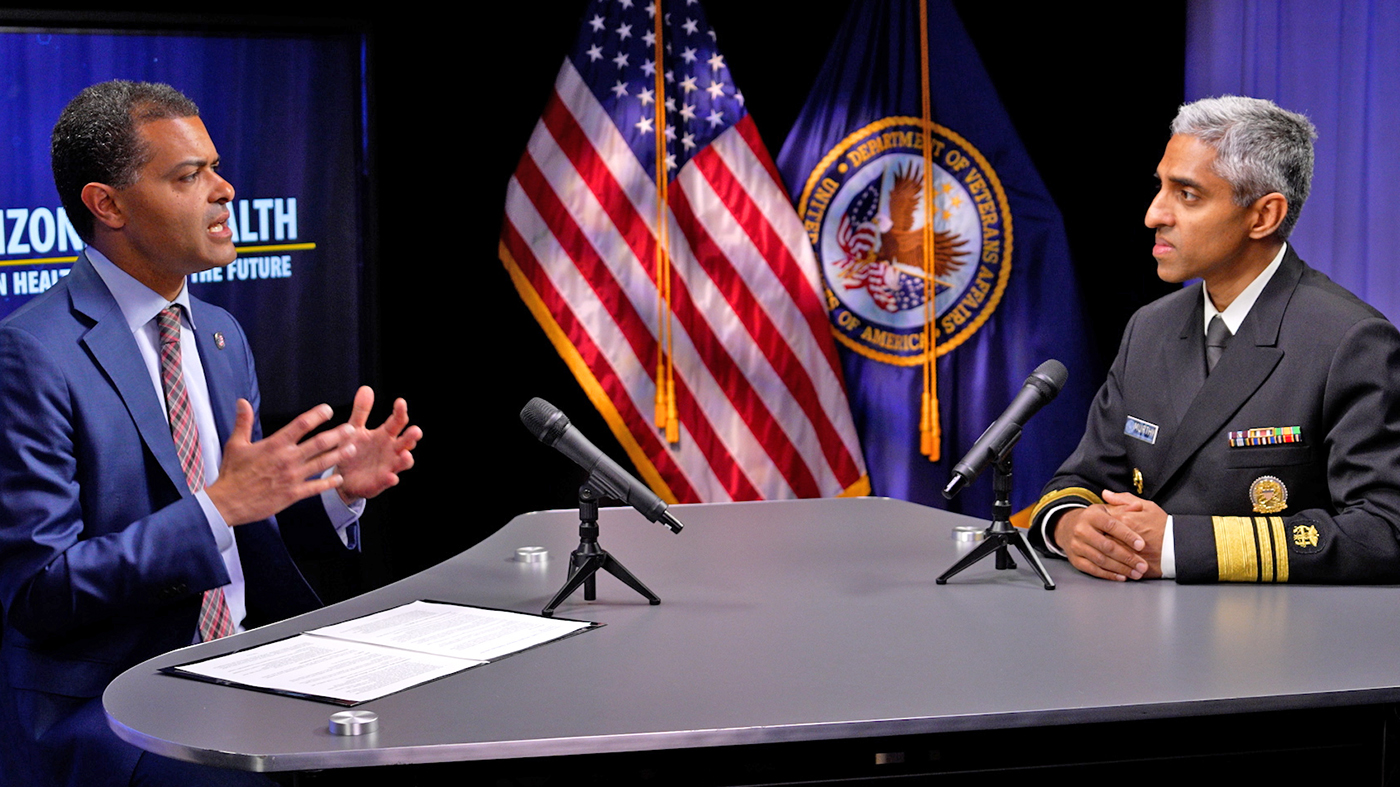It’s Loneliness Awareness Week (June 10–16), a time to recognize that social isolation and loneliness are serious health concerns affecting many Veterans. At VA, we’re committed to connecting Veterans with the support they need to thrive.
We offer a range of programs and services to help Veterans build social connections and combat loneliness, including:
- Peer support groups: Connect with other Veterans who understand your experiences. For example, Veteran Socials uses peer supports to connect Veterans with community-based social events and activities.
- Mental health counseling: Talk to a professional about how you’re feeling. VA mental health counselors can help improve your social skills to build confidence in making connections.
- Social activities: Participate in events and outings to meet new people. Veteran Service Organizations host events and activities where you can socially connect. VA offers a range of in-person and virtual social activities, such as Arts, Adaptive Sports and Whole Health programs where you can socially connect.
- Volunteer opportunities: Give back to your community and build a sense of purpose. VA Center for Development and Civic Engagement offers a variety of volunteer opportunities.
- Compassionate Contact Corps: Connect with caring VA volunteers who will provide friendly phone calls or visits. Talk to your VA clinician about a referral to CCC.
On the latest episode of New Horizons in Health: Bringing Veteran Health Care into the Future, Under Secretary for Health Dr. Shereef Elnahal sat down with Surgeon General Vivek Murthy to talk about loneliness and the importance of social connection to mental and physical health.
Last year, Murthy laid out a framework for a National Strategy to Advance Social Connection, detailing recommendations that individuals, governments, workplaces, health systems and community organizations can take to increase connection in their lives, communities and across the country to improve their health. He explains his impetus for the advisory.
“They didn’t know people who knew them.”
“When I first began my tour of duty as Surgeon General, I started hearing from people around the country who were telling me stories that sounded like loneliness. I spoke to Veterans, actually, who told me that the intense feeling of community that they had when they were in the service, when they were deployed on tours of duty around the world, that that evaporated once they left the service. And even though they came back to a hometown that they knew, that seemed familiar, they didn’t have a sense of community. They didn’t know people who knew them,” he recalled.
Elnahal rounds out the conversation on this episode with Vietnam Veteran Randolph (Randy) Long to talk about his participation in the CCC, VA’s virtual social prescription program. Through this program, trained volunteers are matched with Veterans that are experiencing loneliness, or who are socially isolated, for weekly video or telephone calls.
These weekly chats have been shown to increase feelings of connection for both the participating Veterans and volunteers.
Long suggests to Veterans who might be interested in the CCC program, “It’s not going to hurt. It’s not going to be something that’s going to be harmful to you. It’s quite the opposite. It’s really going to be of benefit to you, maybe a little bit, maybe a whole lot. But it’s a tool that’s going to enable you to, for as long as you can, you know, get the most out of the life that you have left to live.”
If you are a Veteran struggling with loneliness, we encourage you to talk to your health care provider about opportunities for social connection at VA. Taking care of the physical, mental and social health needs of Veterans, their families and caregivers is VA’s top priority.
View the full episode on Youtube or listen wherever you get your podcasts.
Topics in this story
Link Disclaimer
This page includes links to other websites outside our control and jurisdiction. VA is not responsible for the privacy practices or the content of non-VA Web sites. We encourage you to review the privacy policy or terms and conditions of those sites to fully understand what information is collected and how it is used.
More Stories
The Medical Foster Home program offers Veterans an alternative to nursing homes.
Watch the Under Secretary for Health and a panel of experts discuss VA Health Connect tele-emergency care.
The 2024 National Veteran Suicide Prevention Annual Report provides the foundation for VA’s suicide prevention programs and initiatives.







I walked OUT of the VA last September after being told I had Cancer ; Then this ignorant Doctor decided they were having a bad day and expressed that I had ” Not being well to look foward too” A mental health Doctor….
You can pump up the VA with all the lies you want
That Dump Sucks
At least the one in Providence R.I does Plain an Simple
Well loneliness like happiness are foolish states of mind. I am a veteran of the Viet Nam era.
Because I am also a US Naval Vet, the pressures involved in shipboard living have engrained
in my solitary life-style of the present day. I live alone, but am far from lonely. Computers,
music, and general hobbies occupy my time; also I have a small household to run and maintain.
Plus, there is never a dull moment at the building I live in, which makes life interesting. Paying
monthly bills is a given to prevent personal stagnation, as they are always present.
I have many loose-nit “friends” in our building, but it is strictly hi in the halls and elevators, with
no real substance. To put it simply, I am a solitary individual who is an isolationist and I am
reasonably content in my existence. Very Best–Gregory
Great. The VA can pay a speachwriter, but my prescriptions are too expensive.